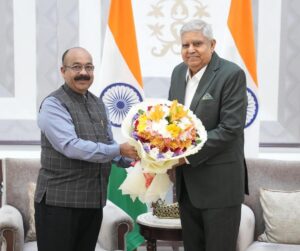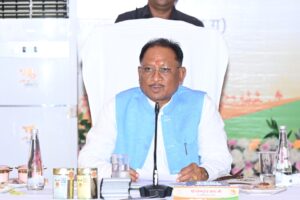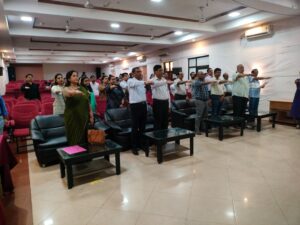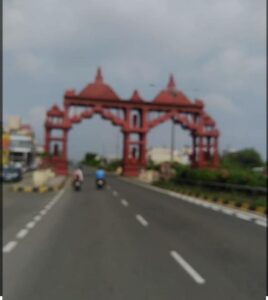Workshop on Green Technology, Climate Change Mitigation held at NIT Raipur
3 min read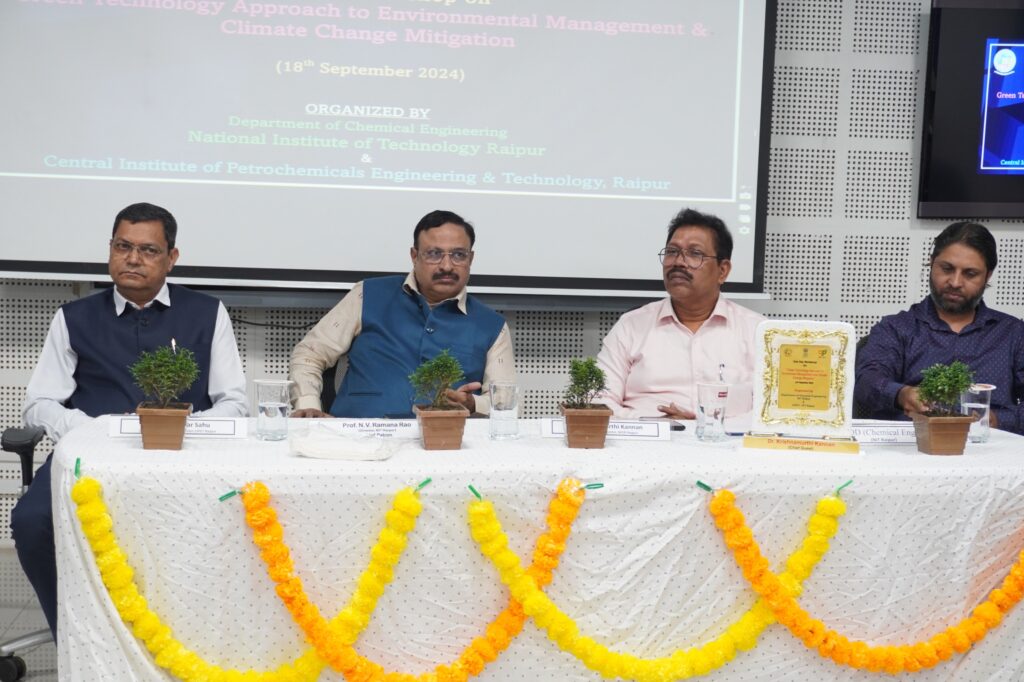
Raipur (Team Newsbuddy) : National Institute of Technology (NIT) Raipur’s Department of Chemical Engineering & Central Institute of Petrochemicals Engineering & Technology (CIPET), Raipur, organized a one-day workshop titled “Green Technology Approach to Environmental Management & Climate Change Mitigation” on 18th September 2024. The workshop aimed to foster discussion and practical knowledge sharing on sustainable environmental practices and climate change solutions. The event was graced by the Chief Guest, Dr. Krishnamurthi Kannan, Chief Scientist at CSIR-NEERI, Nagpur. Dr. N.V. Ramana Rao, Director, NIT Raipur, served as the Chief Patron, with Dr. Alok Kumar Sahu, Principal Director and Head of CIPET, Raipur, as the Co-Patron. In this event Dr. J Aanand Kumar, Associate Dean, (R&C) Dr. M. K. Tripathi, Associate Dean, (R&C), other faculty members from both the institutes and participants were present.
The workshop opened with a sapling ceremony, symbolizing a commitment to environmental sustainability. Dr. Amit Keshav, Head of Department, Chemical Engineering, NIT Raipur, introduced the event by outlining the theoretical and practical aspects of the workshop. He emphasized the importance of environmental management, referencing Singapore as a global leader in this field. Dr. Keshav further highlighted the need for sustainable development and the adoption of green technologies to mitigate climate change, urging participants to focus on the reduction of greenhouse gas emissions through innovative technological solutions.
Furthermore, Dr. Alok Kumar Sahu addressed the audience, emphasizing the importance of practical approaches to the use of polymers and energy. He discussed India’s position as the third-largest producer of plastic and the challenges it faces in balancing plastic production with environmental concerns. Dr. Sahu expressed optimism about achieving the goal of generating 500 GW of renewable energy by 2030 and stressed the importance of involving society and students in addressing environmental issues.
In a captivating address, Dr. N.V. Ramana Rao spoke about the concept of green technology, explaining how eco-friendly materials and practices can significantly reduce environmental impact. He highlighted the benefits of electric vehicles, renewable energy sources like wind and solar power, and the role of energy efficiency in decreasing greenhouse gas emissions. Dr. Rao also addressed the importance of research areas such as precision farming, organic farming, and waste management. He gave examples of advanced waste treatment methods and the use of carbon capture and storage (CCS) technology, which can trap carbon emissions and repurpose them in other processes. The director urged students to become change agents in the fight against climate change, referencing Japan’s green building practices and the pollution issues faced by Delhi, Punjab, and Haryana.
In a thought-provoking address, Dr. Krishnamurthi Kannan built upon the ideas presented by the previous speakers, discussing the critical role of green energy in addressing climate change. He gave examples of recent floods in Italy, attributing such extreme weather events to decades of greenhouse gas emissions. Dr. Kannan shared his research on algae as a biological approach to carbon capture, explaining how this method can convert large amounts of carbon particles into water vapor, thereby reducing air pollution. He also discussed the broader challenges of air pollution, including its impact on stargazing, and highlighted the importance of projects like the DST’s Carbon Capture and Climate Change Mitigation initiative.
The event concluded with a vote of thanks delivered by Dr. J. AnandKumar, acknowledging the contributions of the speakers, organizers, and participants. The event provided a crucial platform for discussing practical approaches to environmental management and climate change mitigation, equipping participants with valuable knowledge to drive future sustainability efforts

